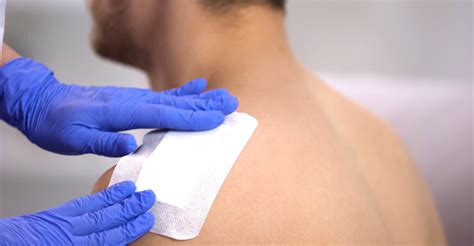The Best Way to Apply Collagen Powder to Wounds: A Comprehensive Guide
Collagen powder is increasingly recognized for its potential benefits in wound healing. However, simply sprinkling it on a wound isn't enough. Understanding the proper application methods is crucial for maximizing its effectiveness and ensuring safe usage. This article explores the best practices for applying collagen powder to wounds, addressing common questions and concerns. We will delve into different wound types, application techniques, and potential side effects.
Disclaimer: This information is for educational purposes only and should not be considered medical advice. Always consult a healthcare professional before using collagen powder on any wound, especially chronic or severe ones.
What Types of Wounds Benefit from Collagen Powder?
Collagen powder can be beneficial for various wound types, but its effectiveness varies. It's often used for:
- Chronic wounds: These are wounds that haven't healed within the expected timeframe (typically 3-4 weeks), such as diabetic ulcers, pressure sores, and venous leg ulcers. Collagen's ability to stimulate cell growth and promote tissue regeneration makes it a promising treatment option.
- Surgical wounds: Collagen can facilitate faster healing and reduce scarring in some surgical incisions. However, its use in this context requires professional guidance.
- Minor wounds: While not usually necessary, collagen powder can aid in the healing of minor cuts and abrasions. However, simple wound care practices are often sufficient.
How to Apply Collagen Powder to Wounds: A Step-by-Step Guide
The application method varies depending on the wound type and its severity. Always follow these general steps:
- Clean the wound: Thoroughly clean the wound with sterile saline solution or as directed by your healthcare provider. Remove any debris or foreign matter.
- Dry the wound: Ensure the wound is completely dry before applying the collagen powder. Moisture can interfere with the powder's adherence and effectiveness.
- Apply the powder: Gently sprinkle a thin layer of collagen powder directly onto the wound bed. Avoid packing the powder into the wound.
- Cover the wound: Apply a sterile dressing to protect the wound and keep the collagen powder in place. Choose a dressing appropriate for the wound type and its exudate level.
- Change the dressing: Follow your healthcare provider's instructions on dressing changes. Frequency depends on the wound's condition and the type of dressing used.
Important Considerations:
- Amount: Use only the recommended amount of collagen powder. Excessive application may not improve healing and can potentially hinder it.
- Type of collagen: Different types of collagen exist (e.g., type I, type III), each with specific properties. Consult your doctor or wound care specialist to determine the most suitable type for your needs.
- Allergic reactions: Although rare, some individuals may be allergic to collagen. Monitor for any signs of allergic reaction, such as redness, swelling, or itching.
Does Collagen Powder Work for All Wounds?
No, collagen powder is not a miracle cure and doesn't work for all wounds. Its effectiveness depends on several factors, including:
- Wound type and severity: Deep wounds or those with significant infection may require more complex treatment approaches.
- Underlying medical conditions: Conditions like diabetes, peripheral artery disease, and immune deficiencies can impact wound healing and may reduce the effectiveness of collagen powder.
- Proper application: Incorrect application can reduce its effectiveness.
What are the Potential Side Effects of Using Collagen Powder on Wounds?
While generally safe, potential side effects of using collagen powder on wounds include:
- Allergic reactions: As mentioned, some individuals may experience allergic reactions.
- Infection: If the wound is not properly cleaned before applying the powder, the risk of infection increases.
- Irritation: In some cases, the powder may cause mild irritation around the wound.
Can I Buy Collagen Powder Over the Counter?
Yes, you can often purchase collagen powder over-the-counter at pharmacies or online. However, it's essential to consult a healthcare professional before using it, especially for chronic or severe wounds.
When Should I Consult a Doctor Regarding Wound Healing?
Always consult a doctor if:
- The wound shows signs of infection (increased pain, redness, swelling, pus).
- The wound is not healing after several weeks.
- You experience any adverse reactions after applying collagen powder.
By understanding the proper application methods and potential limitations of collagen powder, you can utilize this product safely and effectively as part of a comprehensive wound healing strategy. Remember, proper wound care and professional guidance are crucial for optimal outcomes.

